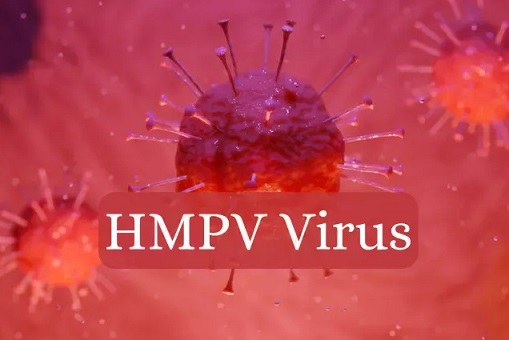Human Metapneumovirus (HMPV) Possibly Utilizes Sialic Acids as an Entry Cofactor
Nikhil Prasad Fact checked by:Thailand Medical News Team Jan 05, 2025 3 months, 1 week, 1 day, 10 hours, 42 minutes ago
Medical News: Human metapneumovirus (hMPV) is a rising cause of concern in global respiratory health. It primarily affects infants, young children, and immunocompromised adults, causing lower respiratory tract infections. Despite its clinical significance, no specific antiviral treatment is available, leaving the medical community to focus on understanding its mechanisms of infection to develop effective therapies. A new study from researchers at Flinders University, Australia, and Mahasarakham University, Thailand, sheds light on the potential role of sialic acids in facilitating hMPV entry into human cells, a breakthrough that could guide future treatment strategies.
 Human Metapneumovirus (HMPV) Possibly Utilizes Sialic Acids as an Entry Cofactor
The Study and Its Objectives
Human Metapneumovirus (HMPV) Possibly Utilizes Sialic Acids as an Entry Cofactor
The Study and Its Objectives
The research aimed to determine whether sialic acids serve as an entry cofactor for hMPV, thus playing a critical role in the virus’s ability to infect host cells. To test this hypothesis, the team utilized DAS181, an investigational sialidase fusion protein known to cleave sialic acids from cell surfaces. DAS181 has previously demonstrated efficacy against influenza viruses, but its effects on hMPV remained unexplored.
This
Medical News report delves into the groundbreaking findings of the study, offering insights into the molecular mechanisms of hMPV infection and the potential therapeutic role of DAS181.
Methods Used in the Research
The researchers employed a combination of in vitro techniques, primarily using HEp-2 cells, a human epithelial cell line. They pre-treated these cells with DAS181 before exposing them to various hMPV strains, including A2, B1, and B2. The infectivity of the virus was then measured using a cell-based enzyme-linked immunosorbent assay (ELISA). For comparison, the team also used DAS185, a mutated version of DAS181 with significantly reduced sialidase activity, to ensure that the observed effects were specific to sialic acid cleavage.
In addition, the team investigated the binding of hMPV’s G protein - a key attachment protein - to the host cells. This was achieved by pre-treating the cells with DAS181 and assessing the binding efficiency of a biotinylated version of the G protein using ELISA techniques.
Key Findings
The study revealed several critical insights:
-DAS181 Inhibits hMPV Infectivity: Pre-treatment with DAS181 significantly reduced the infectivity of all tested hMPV strains. This inhibition was dose-dependent, with even low concentrations of DAS181 resulting in over 50% reduction in viral infection. Conversely, DAS185 showed no effect, confirming that the antiviral activity was due to the sialidase function of DAS181.
-Reduced G Protein Binding: DAS181 also markedly decreased the binding of hMPV’s G protein to the host cells. The treatment reduced binding by approximately 75%, further supporting the role of sialic acids as critical cofact
ors for viral attachment and entry.
-Lack of Cytotoxicity: The study confirmed that DAS181 had no adverse effects on cell viability, even at high concentrations, highlighting its safety as a potential therapeutic agent.
Implications of the Findings
The results strongly suggest that hMPV relies on sialic acids for successful infection. By cleaving these molecules from the cell surface, DAS181 effectively disrupts the virus’s ability to attach and enter host cells. This mechanism is similar to how influenza viruses utilize sialic acids, underscoring a potential common pathway among respiratory viruses.
Moreover, the findings pave the way for DAS181 to be considered as a therapeutic option for hMPV. Given its proven efficacy against other respiratory viruses, DAS181 holds promise as a broad-spectrum antiviral agent, addressing an unmet medical need for hMPV treatment.
Conclusion
The study findings represent a significant step forward in understanding hMPV pathogenesis. By identifying sialic acids as potential entry cofactors, the researchers have opened new avenues for therapeutic intervention. The findings not only highlight the potential of DAS181 as an antiviral agent but also underscore the importance of targeting host-cell factors to combat viral infections effectively.
In conclusion, these findings suggest that targeting sialic acids could be a viable strategy to mitigate hMPV infections. Further research, including animal model studies and clinical trials, is essential to validate these results and translate them into practical therapies. With no current treatments available for hMPV, the implications of this research could be transformative for public health.
The study findings were published in the peer-reviewed journal: Antiviral Chemistry and Chemotherapy.
https://journals.sagepub.com/doi/full/10.1177/2040206616665971
For the latest
HMPV News, keep on logging to Thailand Medical News.
Read Also:
https://www.thailandmedical.news/news/online-media-claim-that-china-has-declared-a-health-emergency-and-that-hospitals-and-crematoriums-are-overflowing-is-it-true
https://www.thailandmedical.news/news/chlorpromazine-found-to-inhibit-human-metapneumovirus-hmpv-by-blocking-virus-internalization
https://www.thailandmedical.news/news/jak1-degradation-by-hmpv-sh-protein-impairs-host-il-6-signaling
https://www.thailandmedical.news/articles/hmpv-human-metapneumovirus
